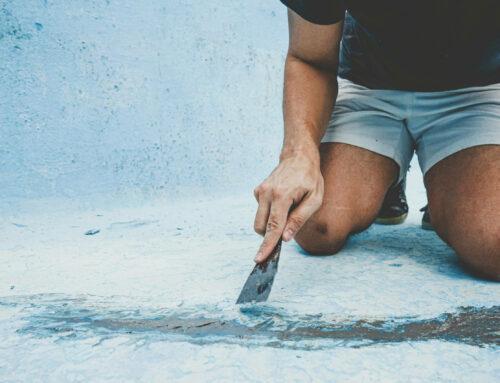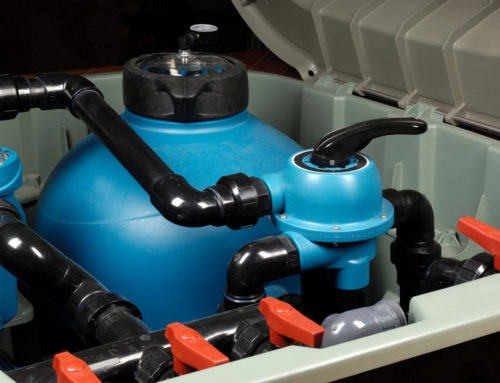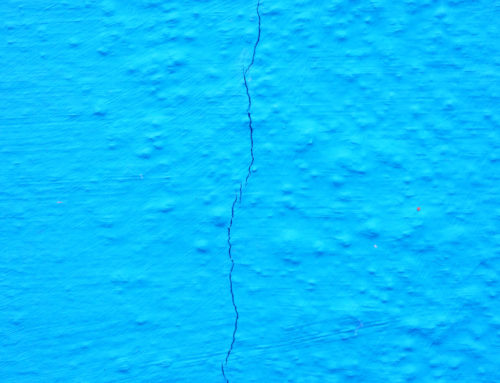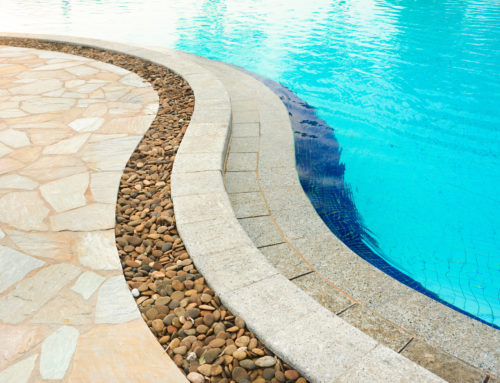Loss of water from your pool is normal. Evaporation and splashing are all part of normal water loss. But, if you are noticing that you are needing to add 2 or more inches of water each week to your pool, you may have a pool leak. A leak in a fiberglass pool can cause the pool shell to lift, depending on the water level in the ground. It is important to find a leak early. An aging pool is more likely to have a leak.
Detecting a pool leak is a process of elimination. There are a few things homeowners can check on their own before calling in a professional.
Evaporation Tests
First, do an evaporation test. Place a bucket next to the pool or on the steps and mark the water level, likewise, mark the water level in the pool with tape or a waterproof marker. After 24-48 hours, check the water levels again. If the pool has a greater loss of water, you have a leak.
Do You See Any Cracks?
Look for some obvious signs of a leak. Visual cracks, soggy spots around the pool, pool decking lifting or sinking, or bubbles coming out of the return lines in your pool are all signs of a leak. If you have a tough time keeping your pH balanced, that also could be a sign of leak.
Other Areas to Check
There are some things you can check before you call in an expert for your pool leak:
- Does it only leak with the equipment on? This may be a pressure-side return leak caused by the filter pump.
- Does it only leak with the equipment off? This could be a leak on the suction side. Air in the pump basket, filter tank or bubbles out of the return lines would be indicators.
- Is the underground plumbing the problem? Hope not! If you shut off the pump and plug all the lines and it still leaks, it’s not the pipes.
- Does it continually leak? Check your skimmers for cracks. Underwater lights can also be a source of a leak.
- Is there any point that the pool stops leaking? This could indicate where the pool is leaking from, high or low.
- Sealants can deteriorate over time. Where visible, check the sealants for decline, cracks or peeling.
There are some areas of your pool that are more susceptible to leaking. If you have a pool with a liner, you can expect 8-15 years with normal use. Eventually a liner will wear out. A filter can be the source of a pool leak. The fix can be as easy as a clean or a repair. If your pool pump is failing, that can be very costly. Catching a problem with the pump early is key to keeping the cost down.
Keep Your Pool Leak-Free, With Texas Fiberglass Pools
Some pool leak problems can be fixed easily with pool putty, others may require a professional resurfacing. Pool leak identification and repair is a highly specialized trade.
Taking care of a problem yourself initially may be good for you financially, but if the pool leak is not fully repaired, it may end up costing more in the long-run.
If your swimming pool has sprung a leak and you need help now, reach out to Texas Fiberglass Pools for leak detection and repairs. Contact us today to schedule an inspection.






